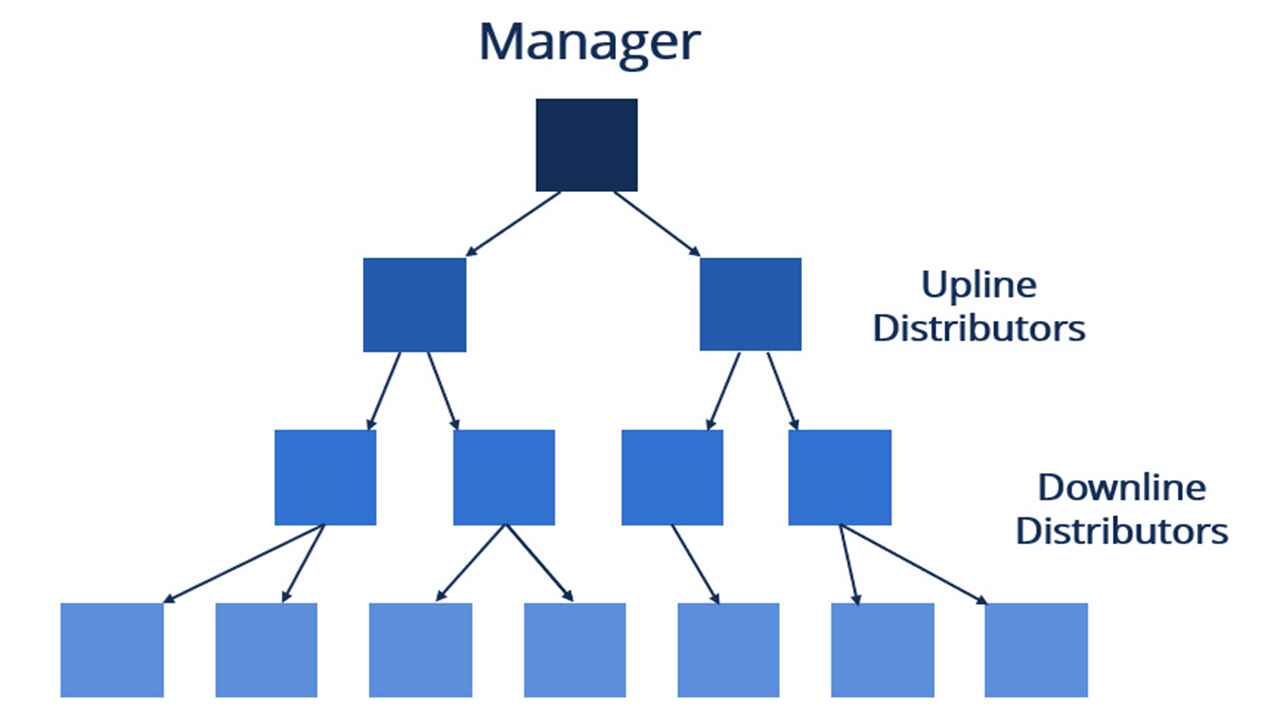Network marketing, or multi-level marketing (MLM), has become a controversial yet fascinating phenomenon in the U.S. economy, luring millions with the promise of financial freedom and entrepreneurial success. But is MLM a legitimate path to wealth or a cleverly disguised trap? Let’s examine the truth behind the industry.
‘If you want one year of prosperity, grow grain. If you want 10 years of prosperity, grow trees. If you want 100 years of prosperity, grow people.’
Chinese proverb
Multilevel Marketing (MLM) Meaning:
Multi-level marketing (MLM), also known as network marketing, is a business model in which people sell products or services directly to consumers. MLM companies encourage existing members to recruit others into the business by promoting and selling to them. Distributors earn a percentage of the sales made by those they recruit. These recruits, known as the distributor’s “downline,” are encouraged to make sales themselves so they can earn money.
How Multilevel Marketing (MLM) Works
Here’s how MLM works in the United States:
Product Sales
Distributors purchase products from the MLM company at a discounted rate and sell them to customers for a profit. This direct-to-consumer approach is the foundation of MLM businesses. Popular products include health supplements, beauty products, and home appliances.
Recruitment
Individuals are encouraged to recruit others into the system. Recruited individuals also sell products and may recruit more members, creating a chain-like structure. The principal earns commissions not only on their own sales but also on sales generated by their recruits and, in some cases, recruits of their recruits.
Compensation Plan
MLM compensation plans typically include the following:
- Direct Sales Income: Profit from selling products to customers.
- Recruitment Commissions: Income from sales generated by your downline.
- Bonus and Incentives: Rewards for achieving sales goals or reaching milestones.
Legitimacy and Credibility of MLM Companies
MLM companies are legal in the United States. They are approved by the Federal Trade Commission (FTC), the agency responsible for regulating business practices to protect consumers. However, there is one caveat: MLMs can become illegal if their primary focus shifts from selling products to recruiting members. The FTC has drawn a clear line between legal MLMs and illegal pyramid schemes. As the nation’s consumer watchdog, the FTC plays an important role in overseeing and addressing issues related to multi-level marketing businesses.
Income Potential and Success Rate in Network Marketing (or MLM)
The income potential and success rate of multi-level marketing (MLM) are often misunderstood, and many people enter the business with unrealistic expectations. According to research and data from the Federal Trade Commission (FTC), nearly all MLM participants struggle to make a profit. On average, less than 1% of them make a meaningful profit, while the majority lose money or break even after expenses, including product purchases and business-related costs.
Studies show that MLM compensation plans heavily reward those at the top of the structure—often those who joined early or were founders—while newer entrants face significant challenges. The FTC emphasizes the importance of transparency in income disclosure, but has noted that many MLMs resist such requirements, making it harder for potential participants to make informed decisions.
Personal Experiences and People’s Opinions About MLM
On Reddit, BklynMom82 wrote about how a close friend introduced them to an MLM that claimed it would change lives. But after months of trying to sell and recruit, things turned sour. “I just felt like it wasn’t about selling anything. It was about getting more people into the business. And in the end, I lost my friendship because of it.”
Jason wrote about his experience on Quora. Despite selling a good amount of products, he struggled to make any real money. “I sold a lot, but I didn’t make nearly as much as I thought I would. Everything just seemed to be stacked against people like me who weren’t at the top of the pyramid.”
Jordan from Quora also posted about MLM testing. “At first it seemed like a dream, but after a while I realized that only a small percentage of people actually make real money. Most of us were left selling to our friends and family, barely even breaking even. It wasn’t worth it.”
On Reddit, Sarah from New York shared how her involvement in an MLM led to damaged personal relationships. “I spent a lot of time trying to recruit my family and friends into this business. It created so much tension and frustration that I had to walk away. No amount of money was worth losing my relationships.”
FeuerFrei knew someone who was doing well in MLM. He’s one of the few people who actually made it work, but it wasn’t because he posted a few things on Facebook. He works tirelessly, attends exhibitions, and makes real connections. But for most people, it’s not that easy.”
Anna wrote on Quora that after months of trying with an MLM, she realized it was all a scam. “I put in a lot of time and money and hardly got anything in return. It was clear that the top distributors were making all the money and I was completely misled.”
Government Regulations on MLM Companies
The Federal Trade Commission (FTC) sets clear rules for multi-level marketing (MLM) companies to ensure they follow the rules and protect consumers. If you are dealing with MLM in the United States, here’s a summary of the most important legal issues:
- MLMs and the Difference from Pyramid Schemes: One of the main areas the FTC focuses on is distinguishing between legitimate MLMs and illegal pyramid schemes. MLMs are legal as long as they focus on selling actual products or services, rather than recruiting new people into the business. If a company emphasizes getting people to sign up more than selling products or services, it is considered a pyramid scheme, which is illegal.
- Disclosure of Real Income: MLM companies must be transparent about the income potential they offer. The FTC requires them to share real numbers based on people’s actual income, not exaggerated promises. If they can’t provide clear and accurate revenue information, be cautious when working with them.
- Recruiting Instead of Focusing on Sales: For an MLM to be considered legitimate, it must focus on selling products or services, not just signing up new people. The money earned should come primarily from sales, not from recruiting people to join.
- Refund Policies to Members: MLM companies should also offer fair refund policies for people who decide to leave. This means they should allow people to return unsold products and get their money back. This helps protect people who realize MLM may not be right for them and prevents financial losses.
- Prohibition of Deceptive Practices: Finally, the FTC has strict oversight to ensure that MLM companies do not use deceptive marketing. This means not exaggerating people’s income. If they claim that participants are making a lot of profit, they need to show that the profit is based on actual sales of the product and not just on recruiting people.
Conclusion
Consequently, while MLMs are legal in the United States, they come with significant risks for participants. The business model may seem attractive at first, but the reality is that the vast majority of people who work in MLM make little money. The most successful people are those at the top of the pyramid. For those considering entering an MLM company, it is very important to understand the potential financial risks involved. Always make sure that the income disclosure information of any company you want to work for is true and watch out for exaggerated claims. In the end, while MLMs may work for a few people, for the majority of people there is no guaranteed path to a good income.















Aliquam a justo quis nibh tincidunt vehicula. Integer eu leo eu enim suscipit efficitur. Sed pharetra sem non nulla fringilla, at rutrum ligula eleifend.
Nunc nec sem a est consectetur eleifend. Phasellus sagittis lacus tristique enim suscipit
Nam ut dui quis mi lacinia ultricies sit amet feugiat neque. Curabitur eleifend iaculis ultricies. Suspendisse vitae turpis malesuada, feugiat nulla at, viverra justo.